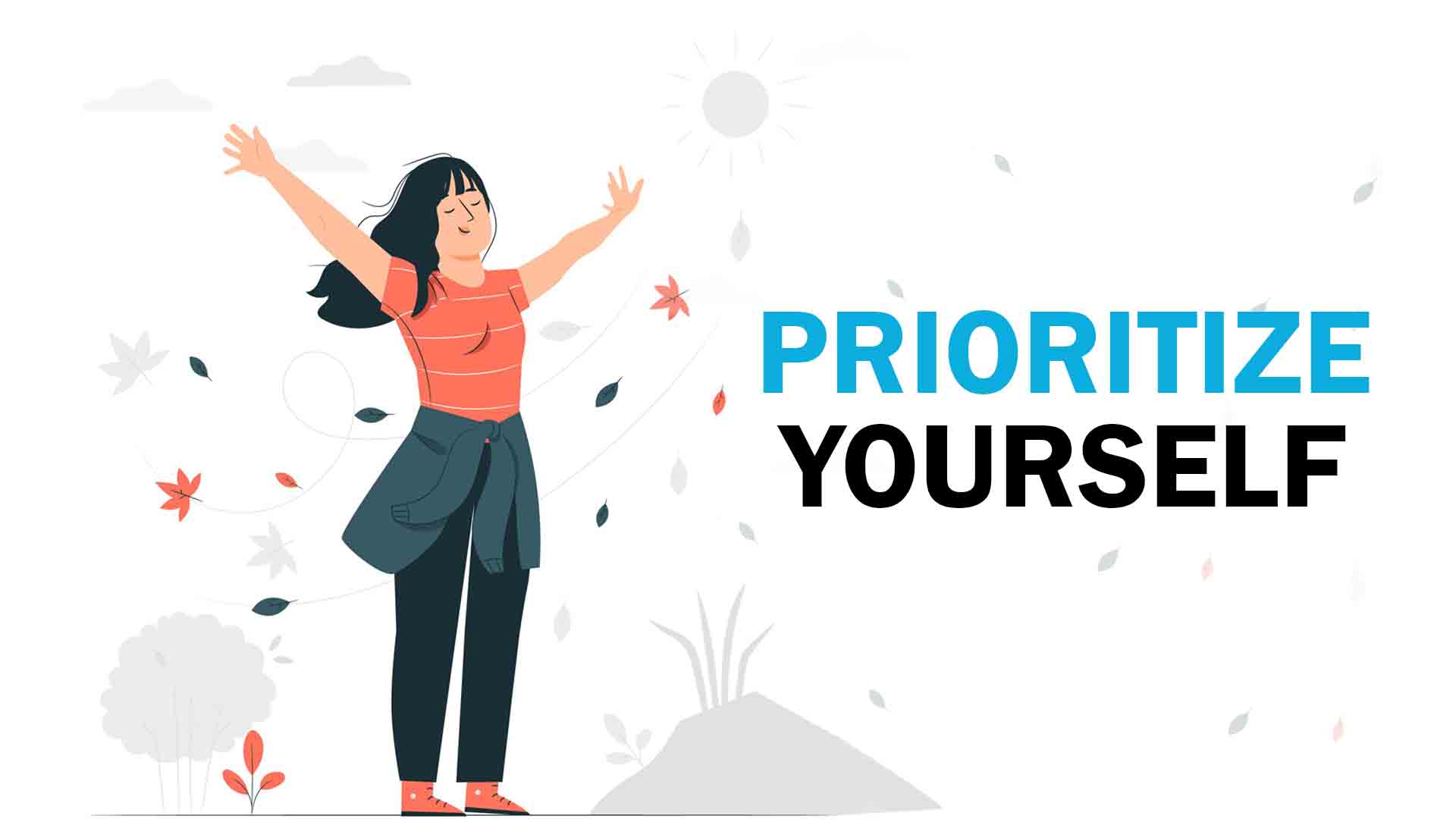How to Prioritize Yourself
Life can be hectic and demanding, leaving us with little time and energy for ourselves. However, it is essential to prioritize ourselves to maintain our physical and mental well-being. In this blog post, we will discuss how to prioritize yourself and why it is important.
Why Prioritizing Yourself is Important
When we neglect ourselves, we may experience burnout, stress, and even physical health problems. We cannot give our best to others if we are not well-rested and happy. Prioritizing ourselves helps us to be more productive, engaged, and fulfilled. Additionally, it sets an example for others to do the same.
How to Prioritize Yourself
1. Set Boundaries
Setting boundaries is crucial to prioritize yourself. This means saying “no” to things that do not align with your values or goals and creating space for activities that do. It could be as simple as not checking your work email after hours or declining a social invitation when you need alone time. When you set boundaries, you communicate your needs and show respect for your time and energy.
2. Practice Self-Care
Self-care is essential for our physical and mental health. It can include things like exercise, healthy eating, getting enough sleep, and engaging in activities that bring us joy. Make time for self-care activities and view them as non-negotiable. It can be helpful to create a routine or schedule for self-care to ensure it happens consistently.
3. Prioritize Rest
Rest is just as important as activity. Giving your body and mind time to recharge is crucial for your overall well-being. Make sure you get enough sleep each night, and consider taking breaks throughout the day to rest and rejuvenate. This could mean taking a short walk, meditating, or simply sitting quietly and taking deep breaths.
4. Learn to Say No
Saying no can be challenging, but it is essential to prioritize yourself. It can be tempting to say yes to everything, fearing that you might miss out on something or disappoint someone. However, saying yes to everything can lead to overwhelm and burnout. Practice saying no politely but firmly, and remember that it is okay to prioritize yourself.
5. Set Goals and Priorities
Setting goals and priorities can help you focus your time and energy on what matters most to you. Take some time to reflect on your values and what you want to achieve in different areas of your life. Write down your goals and create a plan to achieve them. Doing so will help you stay focused and make decisions that align with your priorities.
6. Cultivate Positive Relationships
Surrounding yourself with positive people who support and encourage you can be beneficial to your mental and emotional well-being. Cultivate relationships with people who lift you up and make you feel good about yourself. Additionally, it can be helpful to set boundaries with toxic people or those who drain your energy.
7. Practice Gratitude
Practicing gratitude can help you focus on what you have, rather than what you lack. It can help you feel more content and fulfilled in your life. Take some time each day to reflect on what you are grateful for, and express your gratitude to others. Doing so can help you maintain a positive mindset and appreciate the good things in your life.
Conclusion
Self-care and self-prioritization are essential for our mental, emotional, and physical well-being. By setting boundaries, practicing self-care, prioritizing rest, learning to say no, setting goals and priorities, cultivating positive relationships, and practicing gratitude, you can prioritize yourself and live a happier, more fulfilling life.




